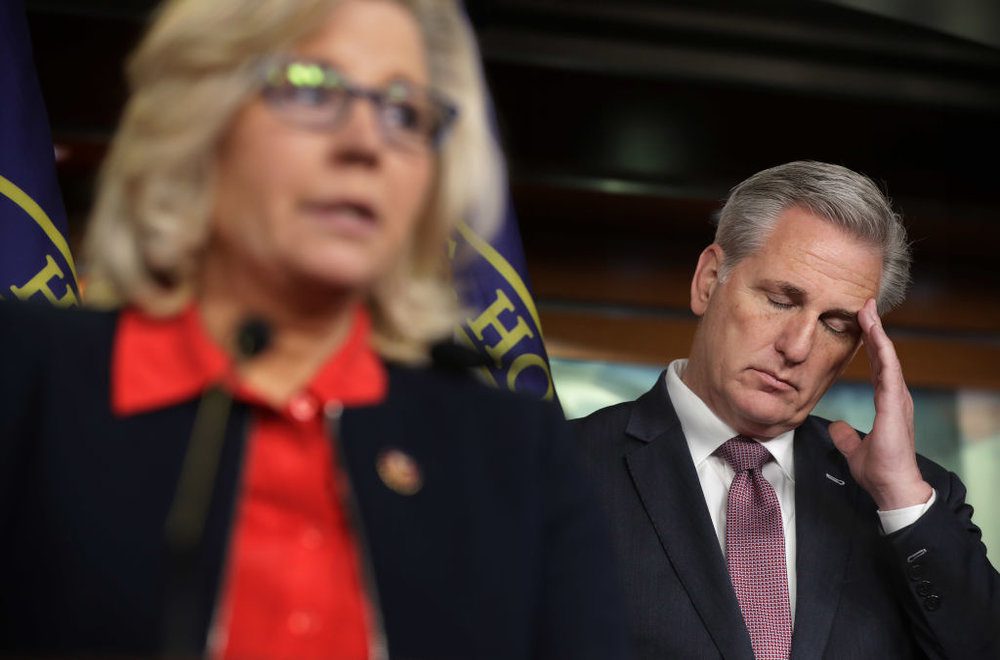What the Liz Cheney Feud Means

As the daughter of the most powerful Vice President in U.S. history, one would think Congresswoman Cheney is destined to reach the same political heights as her father. Her trademark presentation is as a brash, no-nonsense Wyomingmite who rails against the so-called socialist dogmas of the Democratic Party, not to mention, a woman under 60 in a party that is increasingly struggling with the demographics of a changing America. To congressional colleagues and spectators alike, Cheney is positioning herself to be one of the leading figures of the Republican party in a post-Trump era.
Cheney’s political ambition is clear. She is eyeing a role as Speaker of the House, one day running to be on the opposite side of the Capitol in the Senate, or even accomplishing what her father never could —the presidency.
Despite her ambition, the Congresswoman has one critical flaw that may destroy her political future: her defiance of Trump’s foreign policy.
In a time where domestic issues are shaking America to its core, Cheney continues to pursue the standard, hawkish Republican foreign policy line. The Congresswoman has made powerful enemies by publicly condemning President Trump’s decision to remove troops abroad, in places such as Germany and South Korea, citing the potential growing international influence of Russia and China. Cheney stated, “Withdrawing our forces and abandoning our allies would have grave consequences, emboldening our adversaries and making war more—not less—likely.” Cheney is a crucial member of a bipartisan group on the Hill dedicated to keeping troops abroad.
As the House Republican Conference Chair, she will likely lose her position of leadership, as an unlikely coalition of restrainers, Trump loyalists, and the President himself have spoken out about her political grandstanding. Restrainers in D.C. fear the return of Cheneyism to the Republican Party. In a crucial time for Trump, some in the GOP believe he needs more reliable allies on the Hill.
President Trump, Sen. Rand Paul, and Reps. Jordan, Roy, and Gaetz, all have recently publicly criticized Cheney for her stance on foreign affairs. Tension broke out in the House as several Republicans lambasted her for her defiance of President Trump. Even further, Rep. Matt Gaetz has called for her to be removed from her post as chairman, primarily citing her opposition towards the president’s foreign policy. (Although it has been reported that those in the House have been critical of her support of Rep. Massie’s primary opponent, as well as her treatment of Dr. Fauci.) President Trump in a tweet on Thursday stated, “Liz Cheney is only upset because I have been actively getting our great and beautiful Country out of the ridiculous and costly Endless Wars.”
Senator Rand Paul has had a long and public feud with Cheney on her stance on foreign affairs. Sen. Rand Paul reaffirmed the President’s statement, claiming that she is not good for the country, “I mean she tries to sabotage everything he tries to do in foreign policy, so I don’t know whether she’s a good advocate for the President or not.”
If Cheney succumbs to the pressure of the coalition calling for her removal, what will this mean?
For one, it may doom the political future of Congresswoman Cheney. A very public feud with President Trump and his top-allies in Congress has proven to be a death wish for Congressional Republicans. For better or worse, the mere act of criticizing the President has ended political careers. Most members of the GOP who have gotten into a feud with the president, have ‘former’ at the front of their name. Think Mia Love, Bob Corker, and Jeff Flake.
Another possibility is that if Trump loses in November, Cheney will become vindicated as one of the few House Republicans willing to stand for her principles, pushing her towards political stardom. She can spearhead the post-Trump GOP, lead by anti-Trumpers such as the Lincoln Project and guys like Mitt Romney. Although, this seems like wishful thinking on the part of anti-Trumpers, as it is more likely that the GOP will continue to evolve as a nationalist-populist party. Cheney’s foreign policy simply seems out of line with the modern day GOP. According to the Pew Research Center, a plurality of Americans believe it was wrong to invade Iraq. Cheney is hoping to change party doctrine.
Or third, despite the backing of neoconservatives, never-Trumpers, and liberals alike as she bucks President Trump, the congresswoman stays just that, a congresswoman, becoming a rank-and-file Republican with hawkish tendencies in a party that has drifted away on that end.
Nonetheless, the political infighting between Trump and his allies and Liz Cheney shows a stark contrast within the party. To Cheney’s dismay, unless some unforeseen political realignment occurs, the GOP will likely continue the Trumpian brand of foreign policy pushing toward restraint.